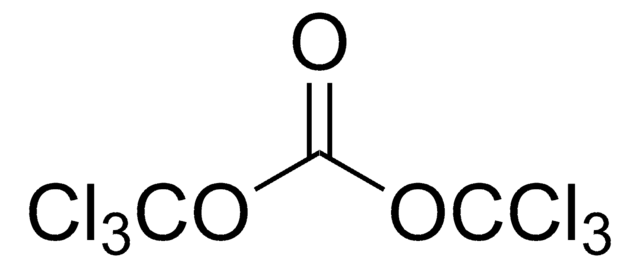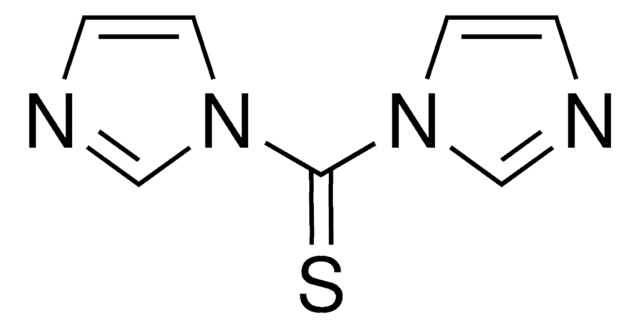115533
CDI
≥90.0% (proton, NMR), for peptide synthesis
Sinónimos:
1,1′-Carbonyldiimidazole
About This Item
Productos recomendados
Nombre del producto
CDI, reagent grade
grade
reagent grade
Quality Level
assay
≥90.0% (proton, NMR)
form
solid
reaction suitability
reaction type: Carbonylations
greener alternative product characteristics
Designing Safer Chemicals
Learn more about the Principles of Green Chemistry.
sustainability
Greener Alternative Product
mp
117-122 °C (lit.)
application(s)
peptide synthesis
greener alternative category
SMILES string
O=C(n1ccnc1)n2ccnc2
InChI
1S/C7H6N4O/c12-7(10-3-1-8-5-10)11-4-2-9-6-11/h1-6H
InChI key
PFKFTWBEEFSNDU-UHFFFAOYSA-N
¿Está buscando productos similares? Visita Guía de comparación de productos
General description
Application
signalword
Danger
hcodes
Hazard Classifications
Acute Tox. 4 Oral - Eye Dam. 1 - Repr. 1B - Skin Corr. 1B
Storage Class
6.1C - Combustible acute toxic Cat.3 / toxic compounds or compounds which causing chronic effects
wgk_germany
WGK 2
flash_point_f
Not applicable
flash_point_c
Not applicable
ppe
Eyeshields, Faceshields, Gloves, type P3 (EN 143) respirator cartridges
Elija entre una de las versiones más recientes:
Certificados de análisis (COA)
¿No ve la versión correcta?
Si necesita una versión concreta, puede buscar un certificado específico por el número de lote.
¿Ya tiene este producto?
Encuentre la documentación para los productos que ha comprado recientemente en la Biblioteca de documentos.
Los clientes también vieron
Artículos
N-Acylimidazoles were recognized in the early 1950s as reactive intermediates suitable for the acylation of amino compounds. The search for better coupling reagents than DCC led to the development of CDI (1,1’-carbonyldiimidazole) and related carbonylimidazoles.
Amide bonds are ubiquitous in both nature and industrial applications. They are vital to the structure and function of biological macromolecules and polymers. The importance of this functionality has resulted in numerous approaches to its formation, ranging from stoichiometric activation of carboxylic acids to more recent advances in catalytic amide bond formation.
Contenido relacionado
Global Trade Item Number
| Número de referencia del producto (SKU) | GTIN |
|---|---|
| 115533-1KG | 4061826731888 |
| 115533-100G | 4061838703323 |
| 115533-10G | 4061838703330 |
| 115533-25G | 4061838703347 |
| 115533-25KG | 4061833431450 |
| 115533-500G | 4061838703354 |
| 115533-5G | 4061838703361 |
Nuestro equipo de científicos tiene experiencia en todas las áreas de investigación: Ciencias de la vida, Ciencia de los materiales, Síntesis química, Cromatografía, Analítica y muchas otras.
Póngase en contacto con el Servicio técnico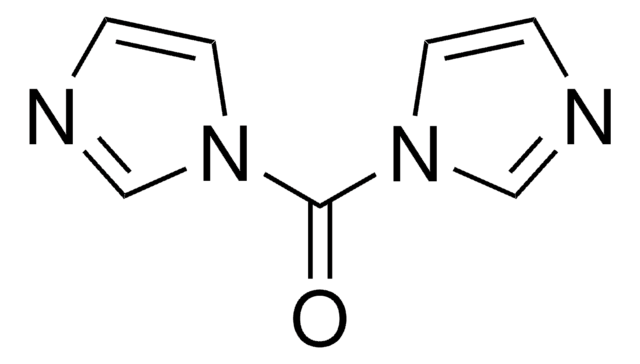
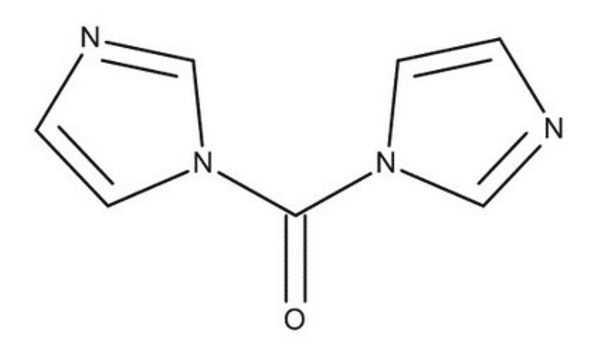
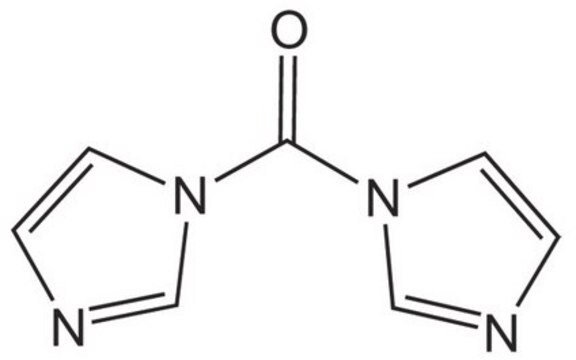
![1,8-Diazabiciclo[5.4.0]undec-7-eno 98%](/deepweb/assets/sigmaaldrich/product/structures/120/564/5b373e23-1624-489c-8efb-692de0f96ffb/640/5b373e23-1624-489c-8efb-692de0f96ffb.png)
